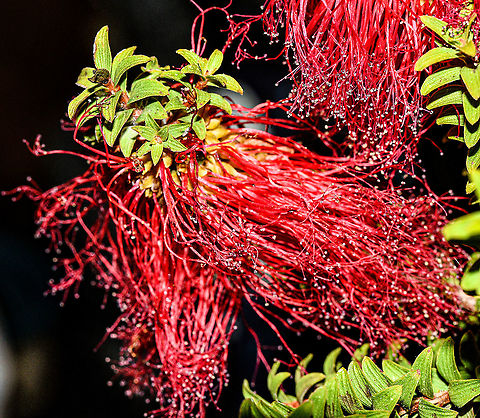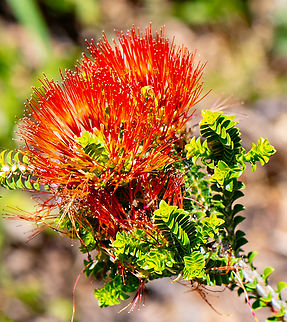
Appearance
"Beaufortia squarrosa" is a shrub which grows to a height of about 2 metres. The leaves are crowded and arranged in alternating pairs so that they make four rows along the stems. The leaves are egg-shaped to oval, less than 4.5 millimetres long and have 5 or 7 veins.The flowers are usually bright red but sometimes orange or yellow and are arranged in roughly spherical heads on the ends of branches which continue to grow after flowering. The flowers have 5 sepals, 5 petals and 5 bundles of stamens. The stamen bundles, which give the flower its colour, contain 3 to 7 stamens and are joined for more than half their length. Flowering occurs from July to December or from January to May and is followed by fruits which are woody capsules.

Naming
"Beaufortia squarrosa" was first formally described in 1843 by Johannes Conrad Schauer in Dissertatio phytographica de Regelia, Beaufortia et Calothamno. The specific epithet is derived from the Latin word "squarrosus", meaning "rough with stiff scales, bracts, leaves or processes".Distribution
"Beaufortia squarrosa" mainly occurs on the coastal plain between the Busselton and Eneabba districts in the Avon Wheatbelt, Geraldton Sandplains, Jarrah Forest and Swan Coastal Plain biogeographic regions.Status
"Beaufortia squarrosa" is classified as "not threatened" by the Western Australian government department of parks and wildlife.Habitat
It usually grows in sand plains and depressions that are wet in winter.References:
Some text fragments are auto parsed from Wikipedia.